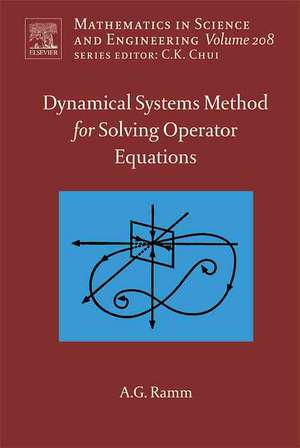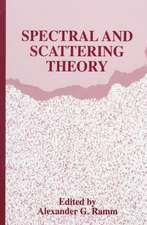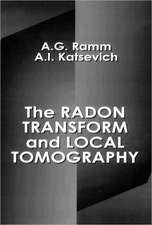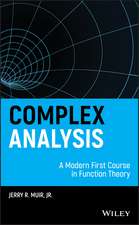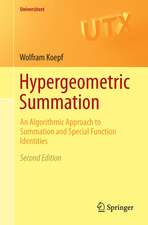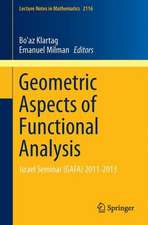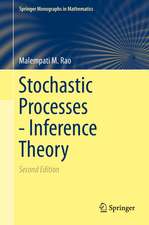Dynamical Systems Method for Solving Nonlinear Operator Equations: Mathematics in Science and Engineering, cartea 208
Autor Alexander G. Rammen Limba Engleză Hardback – 24 sep 2006
- Contains a systematic development of a novel general method, the dynamical systems method, DSM for solving operator equations, especially nonlinear and ill-posed
- Self-contained, suitable for wide audience
- Can be used for various courses for graduate students and partly for undergraduates (especially for RUE classes)
Din seria Mathematics in Science and Engineering
- 23%
 Preț: 690.75 lei
Preț: 690.75 lei - 29%
 Preț: 668.51 lei
Preț: 668.51 lei - 37%
 Preț: 575.30 lei
Preț: 575.30 lei - 22%
 Preț: 687.73 lei
Preț: 687.73 lei - 27%
 Preț: 801.91 lei
Preț: 801.91 lei - 27%
 Preț: 1094.77 lei
Preț: 1094.77 lei - 28%
 Preț: 470.27 lei
Preț: 470.27 lei - 27%
 Preț: 833.30 lei
Preț: 833.30 lei - 27%
 Preț: 1667.79 lei
Preț: 1667.79 lei - 27%
 Preț: 693.60 lei
Preț: 693.60 lei - 27%
 Preț: 1130.00 lei
Preț: 1130.00 lei - 23%
 Preț: 577.28 lei
Preț: 577.28 lei - 27%
 Preț: 1320.35 lei
Preț: 1320.35 lei - 27%
 Preț: 1295.39 lei
Preț: 1295.39 lei - 27%
 Preț: 1182.58 lei
Preț: 1182.58 lei - 27%
 Preț: 1187.92 lei
Preț: 1187.92 lei - 27%
 Preț: 1155.95 lei
Preț: 1155.95 lei - 27%
 Preț: 801.33 lei
Preț: 801.33 lei - 9%
 Preț: 648.88 lei
Preț: 648.88 lei
Preț: 938.93 lei
Preț vechi: 1286.21 lei
-27% Nou
Puncte Express: 1408
Preț estimativ în valută:
179.67€ • 187.97$ • 149.25£
179.67€ • 187.97$ • 149.25£
Carte tipărită la comandă
Livrare economică 02-16 aprilie
Preluare comenzi: 021 569.72.76
Specificații
ISBN-13: 9780444527950
ISBN-10: 0444527958
Pagini: 304
Dimensiuni: 152 x 229 x 17 mm
Greutate: 0.63 kg
Editura: ELSEVIER SCIENCE
Seria Mathematics in Science and Engineering
ISBN-10: 0444527958
Pagini: 304
Dimensiuni: 152 x 229 x 17 mm
Greutate: 0.63 kg
Editura: ELSEVIER SCIENCE
Seria Mathematics in Science and Engineering
Public țintă
Mathematicians, numerical analysists, specialists in scientific computing, engineers and others interested in solving operator equations, ill-posed and inverse problems.Cuprins
1. Introduction2. Ill-posed problems3. DSM for well-posed problems4. DSM and linear ill-posed problems5. Some inequalities6. DSM for monotone operators7. DSM for general nonlinear operator equations8 DSM for operators satisfying a spectral assumption9. DSM in Banach spaces10. DSM and Newton-type methods without inversion of the derivative11. DSM and unbounded operators12. DSM and nonsmooth operators13. DSM as a theoretical tool14. DSM and iterative methods15. Numerical problems arising in applications16. Auxiliary results from analysis
